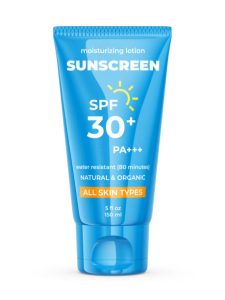Physical or mineral sunscreens containing ingredients like zinc oxide or titanium dioxide are often recommended for their ability to create a physical barrier against the sun’s rays. These ingredients reflect and scatter UV radiation away from the skin, providing effective protection. Additionally, they are less likely to cause irritation or allergic reactions, making them suitable for sensitive skin.
Water-resistant sunscreens are also important, especially if you’ll be swimming or sweating. Reapply sunscreen every two hours, or more frequently if you’re swimming or sweating heavily.
In addition to using sunscreen, it’s essential to practice other sun-safe behaviors, such as seeking shade during peak sun hours (10 a.m. to 4 p.m.), wearing protective clothing, including hats and sunglasses, and avoiding indoor tanning beds.
Ultimately, the best sunscreen is one that you will use consistently and correctly. Finding a sunscreen that suits your skin type and preferences can encourage regular application, which is key to preventing skin cancer and premature aging caused by sun exposure. Always consult with a dermatologist for personalized recommendations based on your skin type and individual needs.
As an Amazon Associate, I earn from qualifying purchases.





